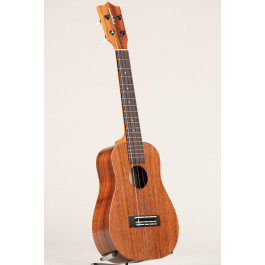SleepyheadRooster
Well-known member
I’ve done some diving into past posts, but I’m just hoping to get some ideas. How many of you who play intermediate/advanced solo fingerstyle ukulele use a concert instead of a tenor? Not just fingerpicking accompaniments, but solo classical, celtic, chord melody jazz, and things like that.
I am primarily a guitarist, and I play a lot of fingerstyle including slack key guitar and some easier classical. I’ve been playing a little bit on a tenor ukulele, but I really love the sound of smaller ukuleles like concerts - probably because they are even less similar to the guitar than a tenor.
I know there are super concerts, but I wonder whether my fingers might eventually adjust to smaller fingerboards with practice.
Practice, practice, practice… and have fun! Thanks!
Thanks!
I am primarily a guitarist, and I play a lot of fingerstyle including slack key guitar and some easier classical. I’ve been playing a little bit on a tenor ukulele, but I really love the sound of smaller ukuleles like concerts - probably because they are even less similar to the guitar than a tenor.
I know there are super concerts, but I wonder whether my fingers might eventually adjust to smaller fingerboards with practice.
Practice, practice, practice… and have fun!

